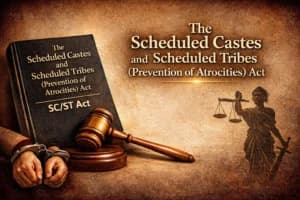The Andhra Pradesh High Court at Amaravati delivered a significant verdict on September 26, 2025, in a long-running family property dispute involving the Chennupati family of Vijayawada. A Division Bench comprising Justice Ravi Nath Tilhari and Justice Maheswara Rao Kuncheam partly allowed an appeal filed by Chennupati Naga Venkata Krishna, setting aside a 1995 compromise decree that was entered into when he was still a minor.
Read also: Tripura High Court slams Railways for delay in land compensation, dismisses revision plea with costs
Background
The case traces back more than three decades. Chennupati Kesava Rao, who owned multiple properties in Vijayawada, died in 1990. His son, Naga Venkata Krishna, was born from Kesava Rao’s second marriage with Manikyamba. The catch, however, was that Kesava Rao’s first wife Pushpavathi was alive at the time, making the second marriage void under Hindu law.
When Krishna was still a minor, his maternal grandfather represented him in several suits. One such case ended in a compromise decree in 1995, where properties were divided. Years later, Krishna challenged that decree in court, arguing it was obtained fraudulently and without the court’s approval for a minor’s compromise, which is mandatory under law.
Read also: Tripura High Court Orders HSCL to Pay Rs.1.26 Crore to Contractor for Arbitrary Contract Termination
The trial court had earlier ruled that while the 1995 decree was invalid, Krishna could not claim all the properties. At best, it held, he was entitled to one-third share as a child of a void marriage, but he must initiate separate proceedings. Dissatisfied, Krishna appealed.
Court’s Observations
The High Court Bench carefully examined whether a minor, upon attaining majority, could reopen a compromise entered without judicial sanction.
The judges noted: “A compromise made on behalf of a minor without leave of court is voidable at the instance of the minor. He is well within his rights to challenge it on attaining majority.”
Read also: Meghalaya High Court Upholds Old Pension Rights for Junior Divisional Accountants, Rejects State
The Bench rejected the respondent’s argument that Order 23 Rule 3A of the Civil Procedure Code barred such a suit. Instead, it held that the provision had to be read alongside Order 32 Rule 7, which protects minors.
On the question of inheritance, the Court held that since no valid wills were proved by the defendant, the estates of Kesava Rao’s mother Ravamma and first wife Pushpavathi must be treated as intestate. Importantly, it clarified that Section 16 of the Hindu Marriage Act legitimises children of void marriages for inheritance of the father’s property, but not necessarily of other relatives.
Read also: Delhi High Court Grants Anticipatory Bail to Mother-Son Duo in Partnership Fraud Case
Decision
Finally, the Court set aside the 1995 compromise decree and upheld Krishna’s right to claim a share in his father’s properties. However, it stopped short of declaring him absolute owner of all assets. Instead, it directed that he is entitled to his rightful share, which must be worked out in proper partition proceedings.
The order concluded: “The plaintiff is not entitled to declaration of absolute ownership over the entire suit properties. He may claim his share in accordance with law, but must restore any possession received under the impugned compromise before asserting further rights.”
With this, the decades-long wrangle in the Chennupati family takes a fresh turn. Further proceedings for partition now seem inevitable.
Case: Chennupati Naga Venkata Krishna vs. Chennupati Jagan Mohan Rao
Case Numbers:
- Appeal Suit No. 841 of 2015
- Cross-Objection No. 1549 of 2016
Judgment Date: 26 September 2025















